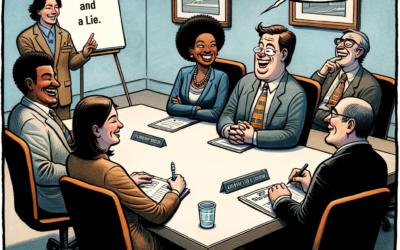
In today’s fast-paced business environment, developing high-performing teams isn’t just an advantage — it’s essential. As the dynamics of work evolve, so must our leadership strategies. One powerful voice in this conversation is the organizational psychologist Adam Grant, whose WorkLife podcast offers deep insights into what makes teams thrive.
In this article, we’ll draw from Grant’s episode, “How to design teams that don’t suck,” featuring collaboration expert Anita Woolley, to explore practical steps you can take to build a high-performing team. We’ll highlight the key principles from the episode and how we at CO2 Coaching apply these lessons to help leaders elevate their teams to new heights.
Building Trust Through Vulnerability
As Grant and Woolley discussed, trust is the bedrock of any successful team. Without it, communication falters, innovation stalls, and team members struggle to perform at their best. But trust isn’t solely earned through competence; it’s built through vulnerability.
Frances Frei’s work emphasizes that trust is made up of three key components—authenticity, logic, and empathy. Leaders must balance all three to create strong, trusting relationships within their teams. If any component is weak, trust will crumble. To lead effectively, you need to show your human side. Vulnerability — while it can feel uncomfortable — is one of the fastest ways to build authentic relationships within a team.
At CO2 Coaching, we work with leaders to help them understand and develop this balance. By fostering environments where leaders can be both competent and vulnerable, we’ve seen firsthand how quickly trust grows, enabling teams to reach their full potential.
The Power of Psychological Safety
Grant also highlighted a key study from Google’s Project Aristotle that found psychological safety to be the most important factor in team success to further developing high-performing teams. Psychological safety means team members feel safe to take risks, ask questions, and make mistakes without fear of punishment. This is essential for open dialogue, learning, and innovation.
As leaders, it’s our job to model behaviors that encourage this kind of openness. At CO2 Coaching, we often remind our clients that “elevating yourself enables you to elevate others.” When leaders create environments where failure is treated as an opportunity to grow, teams feel empowered to push boundaries and innovate.
CO2 Coaching Success Story: One example from our work involves a tech company undergoing a rapid transformation. Leadership was struggling to instill a sense of psychological safety in a high-pressure environment. Through our coaching, we implemented strategies that encouraged open dialogue and risk-taking. Within just a few months, the team reported a significant improvement in their creative output and overall performance. Leaders observed not just better ideas but a more collaborative and engaged team dynamic.
Setting a Clear Vision with Shared Goals
Grant and Woolley both emphasize that high-performing teams aren’t just bound by tasks—they’re bound by a shared purpose. It’s not enough to assign roles and set deadlines; leaders must align their teams around a common vision that motivates them beyond individual success.
At CO2 Coaching, we’ve seen how aligning teams around shared goals can transform performance. Take, for example, a client of ours—a global retail company—that was facing internal friction due to its rapid growth and geographic dispersion. We worked with their leadership to create a unified vision, one that each team member could connect with on a personal level. Within six months, their performance metrics improved by 20%, and team cohesion became one of their greatest strengths.
Our Ascent Leadership Model encourages leaders to ask: “How will we elevate ourselves to be a catalyst for change?” This question, grounded in shared purpose, is critical for unlocking a team’s full potential.
Embracing Constructive Conflict
Many leaders avoid conflict, believing it signals dysfunction. But as Grant points out, conflict—when managed correctly—is essential for growth. Successful teams leverage conflict to challenge ideas, spark innovation, and improve processes.
At CO2 Coaching, we encourage leaders to foster constructive conflict—debates that challenge ideas without attacking individuals. In environments where trust and psychological safety are strong, teams can navigate disagreements productively and arrive at creative solutions. Research shows that teams with moderate levels of conflict often outperform those with none at all.
By teaching leaders how to embrace and guide conflict, we help teams avoid groupthink and instead engage in thoughtful, diverse debates. This has been a game-changer for many of our clients.
The Role of Feedback in Continuous Improvement
Feedback is one of the most underutilized tools for team development. As Grant discusses, feedback, when delivered thoughtfully, can dramatically improve both individual and team performance. The key is balance—providing positive reinforcement for what’s working well while offering specific suggestions for improvement.
At CO2 Coaching, we help leaders integrate feedback as a regular, two-way process. Encouraging feedback not only among team members but also for leaders creates a culture of continuous improvement. This is especially important for leadership development, as it fosters an environment where everyone is committed to growth.
CO2 Coaching Success Story: One of our clients, a financial services firm, struggled with stagnant team performance due to an absence of constructive feedback. Through our coaching, we helped the leadership team develop a balanced feedback approach. Within a year, the firm saw a 15% improvement in team productivity, and the feedback culture led to more innovation and better decision-making.
Conclusion: Elevating Your Team Starts with You
As Adam Grant and Anita Wolley discussed, developing high-performing teams isn’t about hiring the most talented people and stepping back. It’s about actively creating an environment where trust, psychological safety, shared purpose, and constructive conflict are central. By focusing on these elements, you can unlock the true potential of your team.
At CO2 Coaching, we specialize in helping leaders navigate this journey. Through our leadership coaching services, we equip you with the tools, strategies, and insights you need to build teams that thrive in today’s complex business environment.
Ready to elevate your team? Reach out to CO2 Coaching today and let’s work together to help your team reach the next level of performance.



